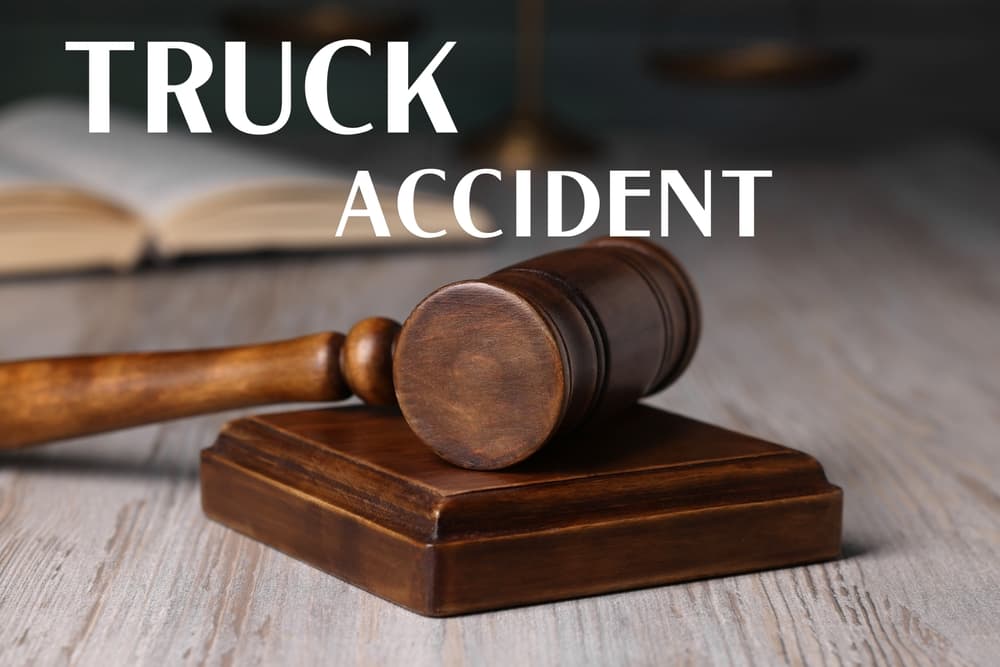When truck drivers operate their vehicles while intoxicated, they increase the risk of catastrophic accidents. Drivers working under the influence can have a delayed ability to react to situations on the road. This is because alcohol has been proven to delay reflexes and impair judgment, potentially resulting in deadly crashes.
Have you been involved in a drunk-driving accident and are wondering if you have legal options for recovery? If you can prove the driver was drug-impaired and link the injuries with the incident, then you have a valid claim. However, you need an experienced truck accident attorney in St. Petersburg to prove these facts and file a claim for the liable parties. They will explore the available options to ensure you understand the avenues for seeking justice.
Continue reading to learn more about drunk-driving crashes and what happens when intoxicated truck drivers cause accidents.
The Impact of Alcohol Use on Truck Drivers
Truck drivers operate large and dangerous vehicles on the road, making their ability to perform safely a matter of public concern. Drugs or alcohol can impair a driver's faculties in several ways. Here are the key ways in which drug and alcohol use undermines a truck driver's ability to operate their vehicle safely.
Impaired Vision

Drug and alcohol consumption can severely compromise a truck driver's visual preciseness, which is useful for maneuvering highways and avoiding obstacles. Alcohol, for instance, affects the brain's ability to process visual information. Illicit drugs like marijuana can distort depth perception, while stimulants such as methamphetamine may cause tunnel vision and heightened light sensitivity.
Truck drivers must monitor vast stretches of road, interpret signage, and respond to sudden changes in traffic. When their vision is impaired, it increases the likelihood of missing critical cues, potentially leading to devastating collisions.
Weakened Motor Skills and Coordination
Operating a commercial truck requires drivers to use precise motor skills and coordination. Drugs and alcohol can disrupt the central nervous system and weaken these abilities. Alcohol slows nerve signal transmission, while depressants can cause sluggish movements.
Conversely, stimulants might lead to erratic or overly aggressive behavior. In legal proceedings, truck accident lawyers may obtain evidence of weakened motor skills, such as toxicology reports or witness testimony, to prove a clear connection between substance use and a driver's failure to maintain control of their vehicle.
Drowsiness or Fatigue

Fatigue is already prevalent in the trucking industry, mainly due to long hours and demanding schedules. Drug and alcohol use amplifies this risk significantly. Alcohol, a depressant, induces drowsiness, even in small amounts, while drugs like marijuana or prescription sedatives can cause profound lethargy. Even stimulants, often misused to combat fatigue, lead to a crash effect once their initial boost wears off, leaving drivers dangerously exhausted.
Poor Decision-Making
For truck drivers to operate safely, they must make split-second decisions, whether to brake, swerve, or adjust speed in response to hazards. Unfortunately, drivers under the influence of drugs and alcohol have reduced risk assessment. Hallucinogens or high doses of stimulants can cause drivers to misjudge distances or react inappropriately to traffic patterns.
Impaired Color Distinction
The ability to distinguish colors is vital for interpreting traffic signals, brake lights, and road signs. However, alcohol and certain drugs can disrupt color perception, making it difficult for drivers to differentiate between color indicators. This impairment poses danger in high-speed or urban environments where precise responses to visual cues are strictly to be observed.
Slow Reaction Time
Reaction time is a truck driver's first line of precaution against collisions, especially given the extended stopping distances of heavy vehicles. Drugs and alcohol universally slow this essential function.
Alcohol delays neural processing, increasing the time it takes to perceive and respond to hazards. Opioids and sedatives further dull reflexes, while even stimulants can impair reaction time when paired with fatigue or overstimulation.
Federal Regulations on Narcotics and Controlled Substances
Federal regulations governing narcotics and controlled substances are key in the trucking industry. These rules aim to prevent impaired driving and ensure public safety. These include the following:
- Drug and Alcohol Testing (49 CFR Part 382): The FMCSA requires drug testing for commercial driver's license (CDL) holders. This includes pre-employment, random, post-accident, and reasonable suspicion tests. Prohibited substances include marijuana, cocaine, amphetamines, opioids, and alcohol above specified limits.
- Controlled Substances Schedules (21 CFR Part 1308): Under the Controlled Substances Act (CSA), narcotics and other drugs are classified into schedules based on medical use and abuse potential. Schedule I drugs (e.g., heroin, marijuana) and certain Schedule II drugs are banned for drivers, even with a prescription, if they impair safe operation.
- Prohibited Conduct (49 CFR § 392.4): Drivers are explicitly barred from operating a commercial vehicle while under the influence of drugs or alcohol. This includes any detectable amount of a prohibited substance in their system, regardless of impairment level at the time of testing.
- Employer Responsibilities (49 CFR § 382.601-603): Trucking companies must implement drug-free workplace policies, educate drivers on regulations, and ensure compliance through testing and monitoring. Failure to do so can make them liable for a driver's actions.
These regulations are complex, especially when combined with the state's truck regulations. A truck accident lawyer can explain how they apply to your situation. Your attorney can then build a case that maximizes your claim's strength against the liable parties.
Injuries in Commercial Truck Crashes
Commercial truck crashes are often worse than other traffic accidents due to the massive size and force of these vehicles. The lawyer who handles your case needs to understand your injuries and their scope to calculate damages accurately. Here are the common injuries associated with drunk truck drivers.
Traumatic Brain Injuries (TBIs)
TBIs result from head impacts or violent jolts, which disrupt brain function. Ranging from concussions to permanent impairment, these injuries often stem from collisions with vehicle interiors or whiplash. Lawyers rely on neuroimaging and expert testimony to prove long-term effects and bolster claims for substantial compensation.
Spinal Cord Injuries
Fractured vertebrae or severed spinal cords from a truck crash can cause partial or total paralysis. These catastrophic injuries demand extensive care and rehabilitation, driving up claim values. Damages usually highlight lifelong costs and lost earning potential associated with damage to the spinal cord.
Broken Bones and Fractures
The force of a truck collision can shatter bones in the legs, arms, ribs, or pelvis. If the crash causes compound fractures, the risk of serious complications increases. Law firms use medical records to document surgery, therapy, and income loss, reinforcing damage assessments.
Other injuries likely to occur include:
- Internal Injuries: Blunt trauma can rupture organs like the spleen or liver, leading to internal bleeding.
- Whiplash and Soft Tissue Injuries: Neck or back strain from sudden jerks causes whiplash, while other soft tissue damage may persist as chronic pain.
- Burns: Fuel leaks or cargo fires in truck crashes can inflict burns, from superficial to deep tissue damage, resulting in scarring or disfigurement.
- Amputations: Limbs may be lost instantly or surgically removed due to crush injuries.
- Psychological Trauma: The terror of a truck crash can trigger PTSD, anxiety, or depression, impairing mental health.
- Lacerations and Abrasions: Debris or glass from a crash causes cuts and scrapes, with severe lacerations potentially damaging nerves.
- Chest and Rib Injuries: Impact with seatbelts or steering wheels can fracture ribs or harm the chest cavity, risking lung damage. These painful injuries may point to excessive crash force or safety failures, aiding liability arguments.
- Wrongful Death: When a truck crash proves fatal, family members may pursue wrongful death claims.
Your truck accident lawyer will put together medical records and consult experts to ensure your claim reflects your injuries and suffering. They can engage accident reconstruction specialists and doctors to assess your injuries and future medical costs. Using this evidence, your lawyer negotiates a settlement or fights in court to secure the compensation that reflects the harm you sustained from the truck crash.
How Do I Prove a Truck Accident Claim or Lawsuit

Proving a truck accident claim or lawsuit is best handled by a lawyer due to the challenging legal, regulatory, and evidentiary issues involved. Commercial truck crash claims are different from other personal injury claims. This is primarily due to the involvement of large vehicles, federal regulations, and multiple potentially liable parties. An attorney has the resources to build a compelling case. Here is how lawyers go about proving such claims.
Establishing Liability
The first step is identifying who is at fault. Lawyers investigate whether the truck driver, trucking company or a third party bears responsibility. They gather evidence like police reports, witness statements, and dashcam footage to pinpoint negligent actions.
If the driver was impaired, the lawyer can get toxicology reports to prove the negligence. Attorneys also examine whether the trucking company violated FMCSA regulations, such as hours-of-service rules, which can establish vicarious liability or negligent hiring practices.
Collecting and Preserving Evidence
Evidence is the foundation of any truck accident claim. With this in mind, lawyers usually act quickly to secure the truck's black box, which logs speed, braking, and other metrics before the crash. They subpoena driver logs, maintenance records, and company policies to uncover violations or negligence.
Additionally, your lawyer may use physical evidence, like vehicle damage, to substantiate your claims. It is not uncommon for them to use accident reconstruction experts to provide valuable insights. Essentially, they will collect and preserve any key evidence to bolster your claim for fair resolution.
Proving Causation
To win a personal injury lawsuit, you must demonstrate a link between the defendant's negligence and the truck accident. It is common for attorneys to collaborate with engineers or forensic specialists to analyze how specific actions, such as delayed braking due to fatigue or impaired reaction time, directly caused the crash. For instance, if a driver's slow reaction time from alcohol use led to a rear-end collision, data from the black box and toxicology results can tie the impairment to the impact. This step involves technical testimony to convince insurers, judges, or juries of the causal chain.
Demonstrating Damages
To secure compensation for your claim, you must prove the scope of your losses. Your lawyer will compile medical records, bills, and expert opinions to quantify economic damages. They will also factor in non-monetary damages such as emotional distress. These are mainly supported by psychological evaluations or family testimony, especially in wrongful death cases. Skilled truck accident attorneys calculate these damages precisely, often using economists or life care planners, to justify settlement demands or trial awards.
Navigating Insurance and Corporate Defenses
Trucking companies often deploy aggressive defense tactics. For example, they may claim that you were at fault or dispute the severity of your injuries. Your legal advocate can counter this by dissecting insurance policies and negotiating with adjusters armed with evidence. If settlement talks fail, they prepare for litigation, deposing company representatives or drivers to expose inconsistencies or admissions of fault.
Leveraging Federal and State Laws
Successful truck accident claims often hinge on interpreting regulatory frameworks. Attorneys cite FMCSA rules, such as drug testing mandates or equipment standards, alongside state traffic laws to strengthen liability arguments. For example, if a driver exceeded hours-of-service limits, leading to fatigue-related errors, this breach can shift blame squarely onto the driver or employer. Also, a lawyer's skill allows them to frame your case within the context of public safety violations to win the maximum settlement amount possible.
Preparing for Trial
While many claims settle with an insurance offer, some may proceed to court. If litigation is necessary, your lawyer will craft a trial strategy and present evidence through compelling narratives, expert witnesses, and visual aids.
Additionally, your lawyer can anticipate defense challenges like contributory negligence and rebut them with facts. Therefore, your lawyer will prepare thoroughly for the trial to maximize the chances of a favorable verdict.
Speak with a Truck Accident Attorney Today
When a truck driver under the influence has caused your accident, you need to take immediate steps. This is because evidence like black box data, driver logs, and test results can disappear if not secured promptly. Also, be quick to speak to a truck accident attorney to ensure your case is built on a solid foundation. If you want to learn your options regarding your compensation for the resulting injuries, contact your personal injury lawyer for a consultation.